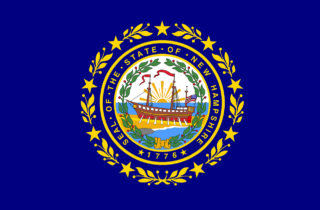 As a result of the COVID-19 crisis, and the effective shut down of most of the US economy over the past several weeks (and for the foreseeable future), many companies are currently hemorrhaging cash, others may be temporarily illiquid, and even more are facing pressure from stakeholders to minimize costs (and maximize profits) in order to navigate and weather the current and impending financial storm. But this is no time to be penny wise and pound foolish, particularly when a company’s trade secrets are at risk and the misappropriation of those trade secrets could destroy the company.
As a result of the COVID-19 crisis, and the effective shut down of most of the US economy over the past several weeks (and for the foreseeable future), many companies are currently hemorrhaging cash, others may be temporarily illiquid, and even more are facing pressure from stakeholders to minimize costs (and maximize profits) in order to navigate and weather the current and impending financial storm. But this is no time to be penny wise and pound foolish, particularly when a company’s trade secrets are at risk and the misappropriation of those trade secrets could destroy the company.
Continue Reading Protecting Trade Secrets Without Breaking the Bank (Or Even Negatively Affecting Profits)
Jeremy Cohen
Prior Ruling on What Constitutes a Litigation “Emergency” May Not Be a Unicorn After All
 As we previously reported, as a result of the COVID-19 crisis, courts across the country are adjourning most appearances, including trials, and hearing only “emergency matters,” often by teleconference or other remote methods. This presents a new quandary for trade secret and restrictive covenant lawyers, who regularly must seek emergency injunctive relief to protect their clients’ trade secrets and customer goodwill. But it does not follow that these lawyers should be careless about when to seek emergency relief; in fact, quite the opposite, they must be more diligent in that regard during the current pandemic.
As we previously reported, as a result of the COVID-19 crisis, courts across the country are adjourning most appearances, including trials, and hearing only “emergency matters,” often by teleconference or other remote methods. This presents a new quandary for trade secret and restrictive covenant lawyers, who regularly must seek emergency injunctive relief to protect their clients’ trade secrets and customer goodwill. But it does not follow that these lawyers should be careless about when to seek emergency relief; in fact, quite the opposite, they must be more diligent in that regard during the current pandemic.
Continue Reading Prior Ruling on What Constitutes a Litigation “Emergency” May Not Be a Unicorn After All
Preparing for Trade Secret and Restrictive Covenant Litigation While the Court Near You is Closed
 Imagine this scenario: You are the general counsel of a company in a particularly competitive industry. A key company employee who has access to some of the company’s most sensitive information has been working remotely for the last three weeks as a result of the COVID-19 crisis, and the employee exploits the opportunity to print or download confidential company information to a personal device, including customer lists and product specifications. The employee then gives notice and immediately begins employment with a direct competitor and begins soliciting your top customers. You consult with outside counsel who drafts a complaint and motion for preliminary injunctive relief and expedited discovery. But, as a result of COVID-19, you cannot obtain emergency relief, or the ability to do so is severely limited. What do you do?
Imagine this scenario: You are the general counsel of a company in a particularly competitive industry. A key company employee who has access to some of the company’s most sensitive information has been working remotely for the last three weeks as a result of the COVID-19 crisis, and the employee exploits the opportunity to print or download confidential company information to a personal device, including customer lists and product specifications. The employee then gives notice and immediately begins employment with a direct competitor and begins soliciting your top customers. You consult with outside counsel who drafts a complaint and motion for preliminary injunctive relief and expedited discovery. But, as a result of COVID-19, you cannot obtain emergency relief, or the ability to do so is severely limited. What do you do?
Continue Reading Preparing for Trade Secret and Restrictive Covenant Litigation While the Court Near You is Closed
Emergency Injunction Not in the Cards? Damages May Be Your Winning Hand
 As we have previously reported, courts across the country are adjourning most appearances, including trials, and hearing only “emergency matters” during the current COVID-19 crisis. As a result, obtaining emergency injunctive relief may be more difficult than in normal circumstances. And attempting to obtain injunctive relief to enforce non-compete agreements against employees who are laid off, while permissible in a majority of states, may be particularly difficult now given that we are quickly entering (if not already in) a period of high unemployment. At the same time, some employers are loosening security measures in the name of convenience and efficiency for remote workers, potentially making trade secret misappropriation easier (we have provided tips for avoiding just that). But that does not mean employers are out of luck if an employee (or someone else) misappropriates its trade secrets or steals its customers. Companies that are genuinely and immediately harmed by trade secret misappropriation and breach of restrictive covenants should still seriously consider seeking injunctive relief, particularly if the activity is causing significant harm to their business. Damages are always an available, if not immediate, remedy, however, where injunctive relief may not be practical.
As we have previously reported, courts across the country are adjourning most appearances, including trials, and hearing only “emergency matters” during the current COVID-19 crisis. As a result, obtaining emergency injunctive relief may be more difficult than in normal circumstances. And attempting to obtain injunctive relief to enforce non-compete agreements against employees who are laid off, while permissible in a majority of states, may be particularly difficult now given that we are quickly entering (if not already in) a period of high unemployment. At the same time, some employers are loosening security measures in the name of convenience and efficiency for remote workers, potentially making trade secret misappropriation easier (we have provided tips for avoiding just that). But that does not mean employers are out of luck if an employee (or someone else) misappropriates its trade secrets or steals its customers. Companies that are genuinely and immediately harmed by trade secret misappropriation and breach of restrictive covenants should still seriously consider seeking injunctive relief, particularly if the activity is causing significant harm to their business. Damages are always an available, if not immediate, remedy, however, where injunctive relief may not be practical.
Continue Reading Emergency Injunction Not in the Cards? Damages May Be Your Winning Hand
Enforcement of Non-Compete Agreements During Times of High Unemployment
 According to a March 26, 2020, News Release issued by the Department of Labor (“DOL”), initial unemployment claims in the United States soared to a seasonally adjusted 3.3 million the week ending March 21, 2020, the greatest single week increase in recorded history, primarily because of layoffs resulting from COVID-19. Indeed, the DOL reports that:
According to a March 26, 2020, News Release issued by the Department of Labor (“DOL”), initial unemployment claims in the United States soared to a seasonally adjusted 3.3 million the week ending March 21, 2020, the greatest single week increase in recorded history, primarily because of layoffs resulting from COVID-19. Indeed, the DOL reports that:
During the week ending March 21, the increase in initial claims are due to the impacts of the COVID-19 virus. Nearly every state providing comments cited the COVID-19 virus impacts. States continued to cite services industries broadly, particularly accommodation and food services. Additional industries heavily cited for the increases included the health care and social assistance, arts, entertainment and recreation, transportation and warehousing, and manufacturing industries.
Some researchers estimate that as many 1 in 5 US employees are subject to non-compete agreements. This means that, in all likelihood, hundreds of thousands of employees who are subject to non-compete agreements were terminated in the last week or so alone.
Continue Reading Enforcement of Non-Compete Agreements During Times of High Unemployment
Protecting Trade Secrets During a Pandemic: Think Twice Before Loosening Security Measures in the Name of Convenience and Efficiency
 When the COVID-19 crisis hit the United States (indeed, before it was even considered a “crisis” here), we provided tips for protecting a company’s trade secrets in the event employees were permitted to work from home. In the ensuing three weeks, not only have employees been permitted to work from home, but many companies have required it. Indeed, an ever-growing list of states, including California, Connecticut, Illinois, Maryland, Massachusetts, New Jersey, New York, Ohio, and Pennsylvania have issued stay-at-home orders and shut down all non-essential businesses for the time being. As a result, there are now millions of employees working remotely who are accustomed to working in an office setting. Indeed, according to a March 12, 2020, flash survey of more than 550 employers conducted by Seyfarth, nearly 85% of responding companies were actively encouraging employees to work from home in some or all parts of the country, and more than 65% were taking steps to provide capability for employees to be able to work from home who do not normally do so. Those numbers are likely even higher now.
When the COVID-19 crisis hit the United States (indeed, before it was even considered a “crisis” here), we provided tips for protecting a company’s trade secrets in the event employees were permitted to work from home. In the ensuing three weeks, not only have employees been permitted to work from home, but many companies have required it. Indeed, an ever-growing list of states, including California, Connecticut, Illinois, Maryland, Massachusetts, New Jersey, New York, Ohio, and Pennsylvania have issued stay-at-home orders and shut down all non-essential businesses for the time being. As a result, there are now millions of employees working remotely who are accustomed to working in an office setting. Indeed, according to a March 12, 2020, flash survey of more than 550 employers conducted by Seyfarth, nearly 85% of responding companies were actively encouraging employees to work from home in some or all parts of the country, and more than 65% were taking steps to provide capability for employees to be able to work from home who do not normally do so. Those numbers are likely even higher now.
Continue Reading Protecting Trade Secrets During a Pandemic: Think Twice Before Loosening Security Measures in the Name of Convenience and Efficiency
What Constitutes a Litigation “Emergency” During a Worldwide Health Crisis?
In the world of trade secret and restrictive covenant litigation, time is often of the essence. Clients need to take immediate steps to prevent the harm that flows from the misappropriation of confidential information. Lawyers need to move with alacrity, and case commencements are typically accompanied by “emergency” motions for injunctive relief and expedited discovery.
steps to prevent the harm that flows from the misappropriation of confidential information. Lawyers need to move with alacrity, and case commencements are typically accompanied by “emergency” motions for injunctive relief and expedited discovery.
Now, as a result of…
Continue Reading What Constitutes a Litigation “Emergency” During a Worldwide Health Crisis?
Love in the Time of Coronavirus: Protecting Trade Secrets During a Pandemic
 Fear of the coronavirus is causing many employers to permit—or in some cases mandate—employees to work remotely. While this measure is designed to minimize the risk of virus transmission, it presents an altogether different risk when it comes to protecting trade secrets, as employees have ripe opportunities to remove trade secrets and other sensitive information from company systems and databases. While remote access is ostensibly provided so that employees can perform their job functions from home, and may even be a necessity in that regard, some employees may take the opportunity to exploit the situation to more nefarious ends, and others may just be careless, which can lead to equally bad outcomes. In addition, employees’ external home networks may not have robust security on par with in-office network security.
Fear of the coronavirus is causing many employers to permit—or in some cases mandate—employees to work remotely. While this measure is designed to minimize the risk of virus transmission, it presents an altogether different risk when it comes to protecting trade secrets, as employees have ripe opportunities to remove trade secrets and other sensitive information from company systems and databases. While remote access is ostensibly provided so that employees can perform their job functions from home, and may even be a necessity in that regard, some employees may take the opportunity to exploit the situation to more nefarious ends, and others may just be careless, which can lead to equally bad outcomes. In addition, employees’ external home networks may not have robust security on par with in-office network security.
Continue Reading Love in the Time of Coronavirus: Protecting Trade Secrets During a Pandemic
Seyfarth Partners Erik Weibust and Jeremy Cohen Speak at AIPLA Trade Secret Summit in New York
 Seyfarth Partners Erik Weibust and Jeremy Cohen participated in the American Intellectual Property Law Association’s 2019 Trade Secret Law Summit on March 21 and 22 at American Express’s corporate headquarters in New York. Erik serves as Vice Chair of the AIPLA’s Trade Secret Committee and a member of the planning committee for the Summit, which addressed a range of topics…
Seyfarth Partners Erik Weibust and Jeremy Cohen participated in the American Intellectual Property Law Association’s 2019 Trade Secret Law Summit on March 21 and 22 at American Express’s corporate headquarters in New York. Erik serves as Vice Chair of the AIPLA’s Trade Secret Committee and a member of the planning committee for the Summit, which addressed a range of topics…
Continue Reading Seyfarth Partners Erik Weibust and Jeremy Cohen Speak at AIPLA Trade Secret Summit in New York
New Hampshire Senate Seeks to Ban Non-Competes for Low-Wage Workers
 On February 21, 2019, the New Hampshire Senate, in a bipartisan voice vote and without debate, passed Senate Bill 197, which would prohibit employers from requiring low-wage workers to enter into non-compete agreements, and makes such agreements void and unenforceable.
On February 21, 2019, the New Hampshire Senate, in a bipartisan voice vote and without debate, passed Senate Bill 197, which would prohibit employers from requiring low-wage workers to enter into non-compete agreements, and makes such agreements void and unenforceable.
The Bill applies to “Low-wage employees,” which is defined to include (i) employees who make less than or equal to twice the federal minimum wage, i.e., $14.50 per hour based on the current federal minimum wage of $7.25 per hour; and (ii) “tipped employees” under New Hampshire Revised Statute § 279:21, who make less than or equal to twice the tipped minimum wage (statutorily set at 45 percent of the federal minimum wage), i.e., $6.54 per hour.
Continue Reading New Hampshire Senate Seeks to Ban Non-Competes for Low-Wage Workers